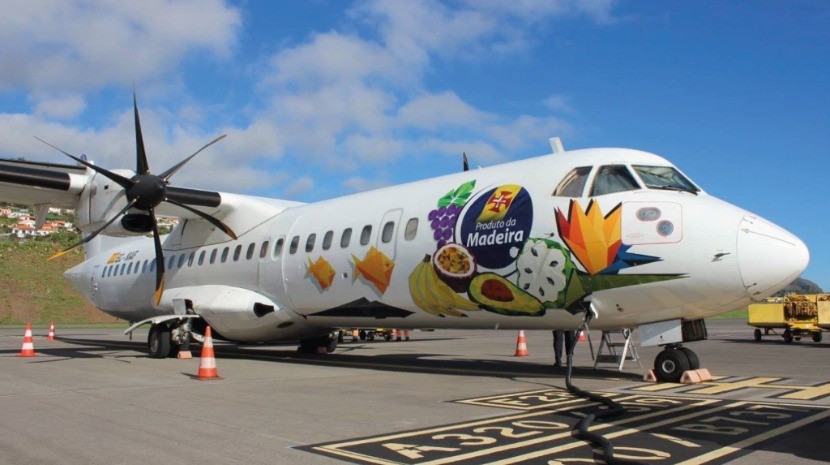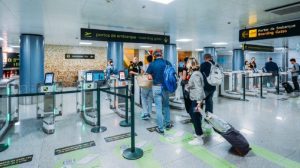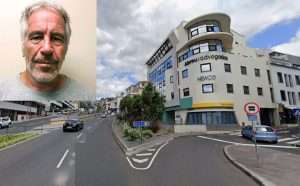The new model for awarding the social mobility allowance for air travel between the Azores and Madeira and between the two regions and the mainland comes into force within 10 days.
The decree law that defines the new model was published today in the Official Gazette and enters into force 10 days after this publication, but one of the main changes to access to the subsidy is dependent on the creation of a digital platform.
The social mobility allowance (SSM) was created in 2015 and was regulated by different decrees of law for the Azores and Madeira, so the Government “decided to create a uniform and single legal regime, with a view to simplification, efficiency and equal treatment between the autonomous regions.”
At stake is the payment of a refund of the amount paid for air tickets, so that passengers from the Azores and Madeira bear a maximum fare defined on trips made between the two archipelagos and to the mainland.
Among the planned changes is the creation of a “platform for the management of beneficiaries and the reimbursement process,” to “simplify and automate eligibility and reimbursement procedures.”
The diploma states that the process of awarding the subsidy will be processed through a “specific electronic platform, to be created through an ordinance of the members of the Government responsible for the areas of finance, air and maritime transport.”
Once this platform is created, the refund request can be made after the ticket has been purchased.
“The amount corresponding to the SSM is paid to the beneficiary after the purchase of the ticket and submission of the request on the platform, even if the submission occurs before the flight, and the beneficiary is obliged to effectively use the ticket, under penalty of refund of the amount received.”
The request can be submitted “between the day of ticket issuance and up to 90 days after the flight or return flight.”
The autonomous regions must “create or strengthen support structures for beneficiaries,” to clarify applicable rules and support, “if necessary and possible, in obtaining documents and submitting them on the electronic platform.”
Until the availability of the electronic platform, the payment of the subsidy continues to be made by the current service provider (CTT), and “the rules for processing the SSM previously in force apply,” which determine, for example, that the beneficiary can only request reimbursement after having proven to have made the trip.”
“A transitional regime has been established, whose validity ends on the 30th of June 2025, or until it is expressly revoked, on a date prior to that deadline,” reads the diploma.
Currently, passengers from the Azores bear a maximum fare of 134 euros on connections to the mainland, with a maximum ceiling of 600 euros on the price of the ticket, and passengers from Madeira bear a maximum fare of 86 euros, with a maximum ceiling of 400 euros.
The Government has already announced that it intends to reduce these values to 119 and 79 euros, respectively.
According to the decree law, “the way to determine the value of the SSM, as well as the documentation proving the eligibility of the beneficiaries” will be defined by ordinance.
The value of the SSM “has as a reference the eligible cost and the maximum value established in the ordinance,” which can also regulate “the eligible value of the different fees.”
According to the diploma, the value of the SSM must be reviewed annually, after hearing the self-government bodies of the autonomous regions, based on an assessment of the conditions of price, demand, and supply and its use by beneficiary passengers.”
The assessment must be carried out jointly by the General Inspectorate of Finance (IGF), with the National Civil Aviation Authority (ANAC) or the Mobility and Transport Authority (AMT), in the first three months of each year, so that the executive can decide on the amount to be attributed to the beneficiaries from the beginning of April.
Despite the speeding up of the refund, with the creation of the platform, beneficiaries have to purchase the ticket, paying the amount in full, before having access to the subsidy.
The diploma therefore provides that a financing mechanism can be created, which should enable the passenger to use credit paid at 100% within a certain period.
The requirements of this financing mechanism will be defined by ordinance and the entities that provide it will be “designated for this purpose” by the Government.
The new model aims to review the eligibility requirements of beneficiaries of the social mobility allowance, seeking to clarify and simplify the respective regime, in line with concerns expressed regarding the eligibility of residents who are not Portuguese nationals.
The social mobility allowance is “granted to student passengers, resident passengers and equivalent resident passengers, and resident passengers are considered “citizens, regardless of their nationality or stateless persons, who have resided for at least six months in an autonomous region.
The change in the concept of resident passenger took effect on the 1st of November 2024.
The new model also aims to create “a control mechanism that aims to mitigate the possibility of charging fare values above the price charged by air carriers”, in order to avoid possible undue use by some economic agents.
According to the decree, the Inspectorate-General of Finance must carry out selective checks, namely in relation to the price charged by the carriers on these routes and the value contained in the corresponding invoices issued by the intermediaries, with a view to cross-confirming the public subsidies requested and paid to the beneficiaries.
Air carriers must inform ANAC and AMT about the fare structure, fare distribution, and additional charges to the ticket price, namely the ticket issuance fee and fuel surcharge.
Whenever they amend them, they must “notify ANAC and AMT, respectively, 24 hours in advance, of the date of entry into force of the respective amendment.
Samantha Gannon
info at madeira-weekly.com
Views: 13








